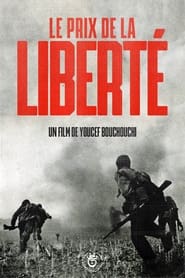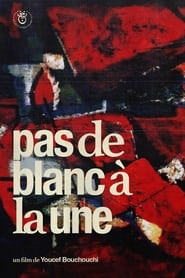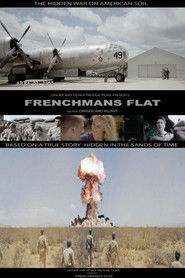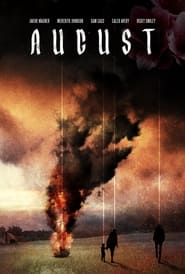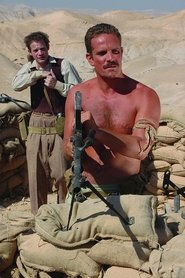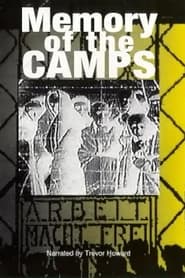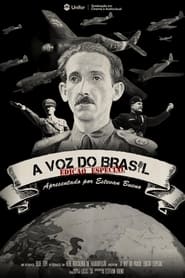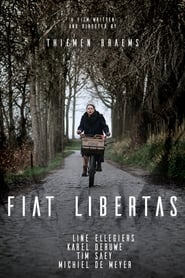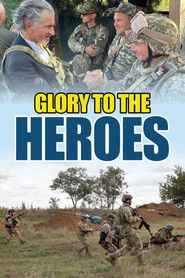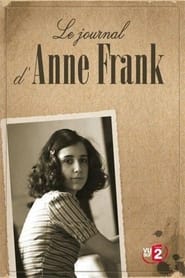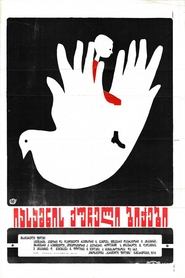Top Rated War Movies on Tub Tv - Page 297
-
A Measure of the Man
1977
A Measure of the Man
1977
star 7A professionally commissioned documentary about the training of Rhodesian Regular Army Officer Cadets. It follows the fortunes of Inf 25/19 - a group of young men commissioned into the Rhodeisan Army in 1977. -
The Price of Freedom
2007
The Price of Freedom
2007
star 10In the midst of the Algerian liberation war, two characters, a meddah (traditional storyteller) and a guerrab (water distributor), having become aware of their subhuman condition in their own country, join the National Liberation Army (ALN) to fight against inhumane colonialism. They will climb the ranks to become political commissioners before falling on the field of honor, the first in a skirmish and the other in Barberousse prison (Serkadji) where he will be guillotined. -
Pas De Blanc À La Une
1971
star 10Pas De Blanc À La Une, by Youcef Bouchouchi, treatises the brutality of the conflict during the war of independence in Algeria from 1854 to 1962, and the systematic use of torture which pushes even the most hesitant to make up their minds. -
Code Name Lucy: Spies Against Nazis
0000
star 8The greatest secret of the Second World War has remained a mystery for the last 80 years: a Jewish Communist, Sandor Rado, led a spy network that proved essential to the victory of Allied Forces. Rado received details of strictly confidential strategies from the highest echelons of the Nazi State through Rudolf Roessler, a dedicated anti-Nazi he'd only known as code name "Lucy." Aided by key German industry leaders, Roessler transmitted timely information from high-ranking collaborators within the German army headquarters. Despite their achievement, Rado, Roessler and their sources remained unacknowledged heroes until today. Thanks to the recent declassification of secret archives, we are now able to step behind the scenes of this incredible story. -
Frenchman's Flat
2017
Frenchman's Flat
2017
star 2In 1953 at the height of the Cold War "Frenchman's Flat" focuses on the atomic weapons testing that was conducted on U.S soil in Nevada. -
August
2023
August
2023
star 10Henry is surprised by the appearance of German P.O.W.s in his rural farming community, and makes a decision that will impact his family for a generation. -
Refugee Poetry
2016
Refugee Poetry
2016
star 10The Kurdish Iraqi poet and actor Zeravan Khalil travels with his dog through an Alpine gorge after fleeing from IS war and genocide. As he remembers the abomination, he writes a poem with the title “You drive me mad” in Kurmanji Kurdish. In his home country, Yazidic Kurds are forbidden to work in his profession. Then he eats his apple and wanders through Europe’s middle with more hope. -
Love, Courage and the Battle of Bushy Run
2024
star 5In 1763, Britain defeated France in the worldwide Seven Years War - referred to in the American Colonies as The French and Indian War. As a result, the French abandoned America, leaving the Native population who had sided with the French to fear the British would seek revenge. Ottawa Chief Pontiac convinced many tribes they needed to strike first. Some did so willingly, others were forced to fight. Their ultimate target was Fort Pitt. The combatants on both sides deployed unconventional and often brutal strategies and tactics. Colonel Henry Bouquet, with a ragtag group of British soldiers, Scottish Highlanders and American volunteers, was tasked with trying to save the hundreds of men, women and children facing certain death - or worse - in Fort Pitt. The little-known Battle of Bushy Run changed the course of world history... This is that story. -
Homeland
2008
Homeland
2008
star 61948 War. Lolek, a young Holocaust survivor ,arrives in Israel and thrown in the middle of the desert. A stranger to the language and the new identity he is given, he is assigned in an isolated post under a brutal commander and the burning sun. Afflicted by homesickness and the heat, he sets out to look for some shade -
Memory of the Camps
1985
Memory of the Camps
1985
star 2In 1945, Allied troops invaded Germany and liberated Nazi death camps. They found unspeakable horrors which still haunt the world’s conscience. A film was made by British and American film crews who were with the troops liberating the camps. It was directed in part by Alfred Hitchcock and was broadcast for the first time in its entirety on PBS FRONTLINE in 1985. -
Two Fathers
1944
Two Fathers
1944
star 7An Englishman and Frenchman sharing a hotel room discover their children are fighting on the same side, French Resistance and R.A.F. -
Ismail at Isabel
2017
Ismail at Isabel
2017
star 10Playwright Rody Vera lends an intriguing take on the issue of children and war through his opus “Ismail at Isabel". The plot revolves around two characters: Ismail (a Muslim) and Isabel (a Christian), who lived in a village called Dilangawen, an atypical place in Mindanao where Muslims and Christians once settled peacefully until it collapsed due to the pressures of violence and war. Mirroring similar events facing the country today, the play also exposes the plight of children and the ill effects of war towards them, their families and their environment. Although coined as a children’s play, Although it comes with a strong message, “Ismail at Isabel” promises to be an uplifting and celebratory story about the transformative power of hope. -
The Opium War
2020
The Opium War
2020
star 2Thousands of young people are dying from using drugs in Kachin State, Myanmar. When the government is not doing enough to crack down drugs problem, the civilians formed the anti-drugs organization called "Pat Jasan" which means "Stop and Clean the drugs" in local Kachin Language, to eradicate drugs. A clash between "Pa Jasan" grups and drugs lords occurred. -
Fiat Libertas
2021
-
The Charge of Texel
2023
The Charge of Texel
2023
star 71795, Holland. The French vanguard is pushing towards the north, through a strong blizzard, beyond the enemy lines. At the head of the cavalry, Major Lahure learns that a British fleet, seeking to escape to England, is trapped by the ice off the coast, and prepares one of the boldest ventures of its time. -
Glory to the Heroes
2023
Glory to the Heroes
2023
star 8An eye-opening documentary capturing Ukrainian soldiers in trenches and civilians facing ongoing destruction by invading Russian military forces. -
The Diary of Anne Frank
2009
star 6During World War II, a teenage Jewish girl named Anne Frank and her family are forced into hiding in the Nazi-occupied Netherlands. -
The Boys From Lilac Street
1976
star 9The story about the friendship between a Soviet fighter squadron pilot and the children stuck in a city destroyed by the enemy during WW2.
 Netflix
Netflix
 Amazon Prime Video
Amazon Prime Video
 Apple iTunes
Apple iTunes
 Apple TV Plus
Apple TV Plus
 Disney Plus
Disney Plus
 Google Play Movies
Google Play Movies
 Paramount Plus
Paramount Plus
 Hulu
Hulu
 HBO Max
HBO Max
 YouTube
YouTube
 fuboTV
fuboTV
 Peacock
Peacock
 Peacock Premium
Peacock Premium
 Amazon Video
Amazon Video
 The Roku Channel
The Roku Channel
 AMC+
AMC+
 Kocowa
Kocowa
 Hoopla
Hoopla
 The CW
The CW
 Vudu
Vudu
 Starz
Starz
 Showtime
Showtime
 PBS
PBS
 Pantaflix
Pantaflix
 FXNow
FXNow
 Tubi TV
Tubi TV
 Kanopy
Kanopy
 Comedy Central
Comedy Central
 Crunchyroll
Crunchyroll
 Microsoft Store
Microsoft Store
 Redbox
Redbox
 Sun Nxt
Sun Nxt
 ABC
ABC
 DIRECTV
DIRECTV
 Crackle
Crackle
 Fandor
Fandor
 Plex
Plex

